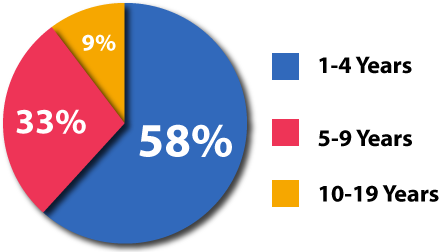Manual Testing Training
We are the best providers of Manual Testing Training with real time corporate professionals. Besant Technologies is a terminus of Education for anything and everything about Manual Testing Training. We bring in the latest technology, innovative teaching methodologies and quality education which are blended together to create unique learning along with practical experiences.
The courses in our concern have been constituted towards the needs of current industry standards. While we will continue to emphasize our own basic academics, we are also aware that our candidate; will demand competencies that enhance employment and livelihood opportunities. Clearly the perspective will be to continuously demonstrate the quality in the delivery of technology.Our concern is committed to its role in helping the individuals (or) corporate in areas of software testing through its innovative programs and outstanding faculty.
Software Testing introduction
Verification and Validation
Application types
- Windows application or Desktop Application – Standalone and Client/Server applications
- Web application – 3- tier or N-tier application
- Web Portals
- Mobile Applications.
Difference between desktop application and web applications
Web application vs Web Portals
Mobile application testing and its introduction
Need of SDLC and its Phases introduction
Waterfall Model
Prototype Model
Spiral Model
V- Model
Analysis of traditional sdlc model and current model
Incremental Model – Agile and Scrum Framework
Agile
Importance of Agile and its different framework – Sprint
Scrum roles and responsibilities
Scrum user story splitting and estimation techniques
Pros and cons of Scrum framework
Difference between Use cases, Test cases and Scenarios
Difference between Test plan and Strategy
Concept about Error, bug, defect and failure.
Preparing Bug report
Bug life Cycle
Entry and Exit Criteria
Priority and severity
Introduction to test management tool
Exercises with test management tools like bug tracker
Seven Principles of testing – Importance
Real time examples for below principles
- Testing shows presence of defects
- Exhaustive testing is not possible
- Early testing
- Defect clustering
- Pesticide paradox
- Testing is context dependent
- Absence of errors fallacy
Static and Dynamic testing
Functional and Non Functional testing
Black Box testing and its types –
- BVA (Boundary Value Analysis)
- Equivalence partitioning,
- Decision tables
- Graph based methods – State transition diagram
- All Pairs testing
White box testing and its nature
SIT – System Integration testing
UAT – User Acceptance testing
Adhoc testing
Regression testing
Progression testing
Exploratory Testing
Alpha and beta testing
Positive and Negative testing
Integration – Big Bang approach and Incremental approach
Top Down and Bottom up integration approach
Importance of Integration testing and its test case preparation
Importance of Non-functional testing
Types of Non-Functional testing
- Performance testing (Stress and Load)
- Volume
- Security
- Compatibility
- Configuration testing
- Comparison
- Scalability
Requirement traceability matrix – Requirement mapping
Test Coverage or Requirement Mapping
FAQ
What I need to do if I want to join this course?
SIMPLE.!
Just give us a call @ +91-7667677607 or fill up the contact us form here.
Will I get real time practical during the session?
YES! It is,
The whole session is framed as a hands-on training program, since the trainers having more than 15+ years of live project experience you will each and every concept practically.
Why I need to learn Apache JMeter Load Testing Tool?
Apache JMeter is the popular load testing tool which is used by most of the companies hence it is an open source software application. You can easily simulate load to the server to test the performance and function of a website.
Thus Apache JMeter is used majorly to test the web applications, hence there are also more number of job vacancies available for a JMeter tester.
May I know the percentage of Job opportunities available for JMeter Tester?
SURE..! Here is the percentage of job opportunities available for JMeter Testers according to the details collected from top MNCs.




